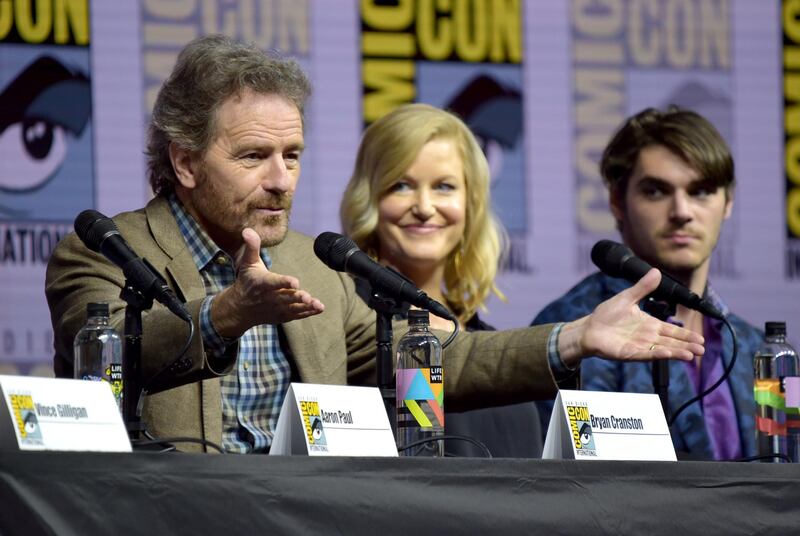When you have to respond to a significant question with: "It was a business decision," you know you've hit a nerve. Hiding behind finance doesn't merely show what's wrong with privilege – it also demonstrates a fundamental misunderstanding of the terms of debate. That was made very clear this month in the contrasting responses from able-bodied Breaking Bad star Bryan Cranston, who was defending his decision to play a wheelchair-bound billionaire in the film The Upside, and Jameela Jamil, the rising British star who turned down the chance to play a deaf character, saying the role could be given to a "brilliant deaf woman" – despite the fact she used to be partially deaf herself.
It also speaks to the debate that has long raged over the lack of parts for minorities and under-represented segments of society in mainstream TV and Hollywood – and the fact that those best-equipped to play them are often overlooked when those roles do arise.
Consider, for example, the case of Emma Stone, who was called out for "whitewashing" at the Golden Globes this month. Despite being white, she was cast in the 2015 film Aloha as Allison Ng, a woman of Chinese-Hawaiian descent. Needless to say, she is neither, so when the awards host Sandra Oh joked about it being one of the few major studio films with an Asian American lead, she at least had the decency to shout: "I'm sorry". She has since said the criticism made her reflect on widespread racism in her industry: "I've learned on a macro level about the insane history of whitewashing in Hollywood and how prevalent the problem truly is. It's ignited a conversation that's very important."
Would that Cranston had shown the same level of self-awareness. He bristled at criticism of him playing a quadriplegic, saying: "As actors, we’re asked to be other people, to play other people. I’m wealthy, I’m very fortunate, does that mean I can’t play a person who is not wealthy?"
This is of course a nonsensical argument, based on a sense of supreme entitlement, which exposes a blindness to the world around you, how it is structured and the impact of your choices.
He is not alone in this. Cranston follows in the footsteps of many actors, including Jake Gyllenhaal and Dwayne Johnson, who have faced criticism for playing disabled characters.
That's why Jamil was a breath of fresh air in the ongoing debate. She demonstrated that being a star while being an individual who recognises imbalances in social structures, and how our choices affect those structures, were entirely compatible.
As she said: “I think you have to make those choices and not be too greedy and make space rather than take space,” adding: “I don’t want to be part of erasure.”
The arguments forwarded by actors to justify taking roles from those already under-represented in the industry – those who are effectively being erased from view, on our screens at least – are at cross-purposes to the problem that the under-represented groups are calling out. And their refusal to understand the impact of their own actions makes them complicit in denying opportunities to others by keeping roles for themselves.
Their argument is that acting is about creativity and suspending disbelief. But then why, when we talk of black actors playing roles where race should be immaterial, is there such outrage when they do? When Idris Elba was touted as the next James Bond, there were mutterings that he could be too "street" to play the legendary spy. And when black actress Noma Dumezweni was cast as Hermione Granger in a theatre production of Harry Potter and the Cursed Child, there were complaints from fans over the viability of the character being black. Hearteningly, JK Rowling was quick to tweet a response, saying she had never specified skin tone in her writing and loved the idea of a black Hermione.
But despite her actions, there are still many groups that simply don’t get access to the creative industries or the mediums in which our stories are told. And equally, there are many actors and actresses who show little awareness that the choices they make reverberate beyond a review in a trade publication or a moment of glory on an awards stage.
Until there is equal representation of people from all backgrounds and walks of life, there is simply no justification for snatching one of the few roles which do exist for anyone who is non-white or disabled.
Shelina Janmohamed is the author of Love in a Headscarf and Generation M: Young Muslims Changing the World





